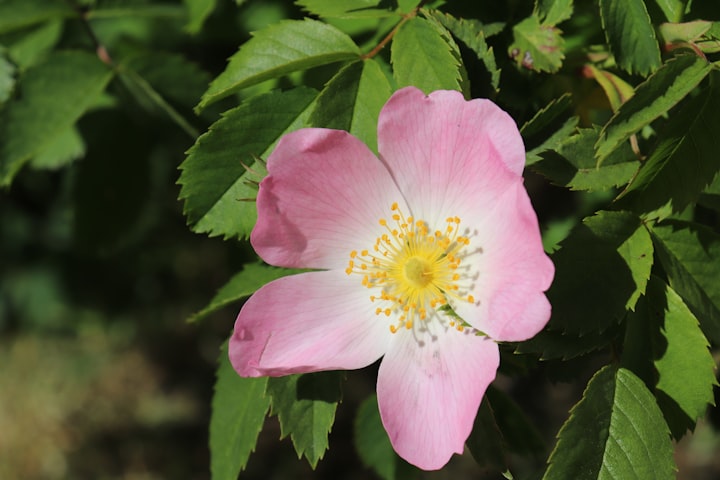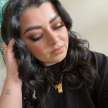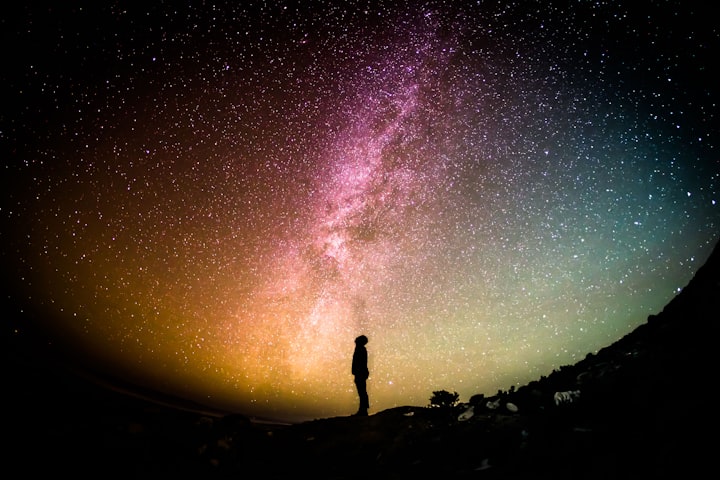100% Adopted
The Little Romanian Girl Who Got To Meet Her Mother

For most things, I can’t remember what happened yesterday.
As for the day I met my mother, that is a memory I will be able to re-play in my mind as if it were yesterday.
It was morning, around 8:30 when our translator picked us up and piled us into her little Toyota Tercel, or some vehicle along those lines. All I remember is that it was a white four-door car that could have been any one of those Tercel makes.
It was early fall; I remember the morning so well. It reminded me so much of the mornings on my humble island back home. Early fall mornings are sheer magic for anyone reading this that isn’t from Vancouver Island. Where I grew up, in Cobble Hill, I remember early September mornings with crisp, fresh, clean air. Back then, Summer would run late into September. Daytime, the air would be warm and welcoming. At night, it would plummet to freezing temperatures, leaving the edges of my mother’s rhododendrons leaves embroidered with frost in the early mornings, glinting like diamonds in the warm morning sun.
That’s when the magic started.
I used to love feeling the transition of the bitter cold air on my cheeks as I walked through the shadows towards my father’s car into the warm sun. I remember how sweet the air smelled. Thinking of it now makes my mouth water. That is how I would have described the morning we drove to meet my mother—that same brisk, bright feeling, surrounded by sweet air.
I was nervous as hell to meet my biological mother. In fact, a few weeks prior, when my parents and I were still in Italy, I told my mom I was scared and that I wasn’t sure if I wanted to meet her after all. I didn't know what to expect, which is what I think was the hardest on me at the time. It wasn't that I would be meeting the woman who brought me into this world; it was that I had little to no idea who she was and who she would be. I didn't know it then, but I was having a mini existential crisis.
When the day came, I remember feeling more adrenaline than anything else. My heart was racing in the same way it did right before I would go on stage to perform. It was electric, and I liked it because it made me feel alive.
The geography of Romania is similar to the island. It also has rolling hills, green valleys and vast forests.
The morning sky was painted with bright reds, pinks and corals. The horizon glowed golden over the vast plains of farmers’ fields. Silhouettes of wrangled, worn wood and wire fences clung to the ground where the sky met the earth. My mother sat in the front seat, and my father sat in the back with me. I couldn’t take my eyes away from the window. I didn’t know how long we would be driving until we got there. My mom said she remembered exactly how to get there, which is why she sat up front to direct our translator. Before I knew it, I heard her say,
“Turn here.”
We turned left onto a dirt road that seemed to lead back into a cul de sac of houses. My mom started to second guess if this was the right road and decided we should ask one of the locals. Our translator pulled up to some people who were walking down the dirt road. Everything seemed like a haze like I was swerving in and out of consciousness. I was physically in the moment, but mentally I honestly don’t remember where I was.
I snapped back to reality. The two people who were speaking with our translator seemed to be becoming more excited. Before I knew it, a handful more people surrounded the car, opened the door and began pulling me out of it. Through the commotion, I heard my mom assure me that this was the place, and it was safe for me to exit the car. These people weren’t strangers, they were members of the village I was born in, and they remembered me.
I remember their faces, the way they looked at me. As if I was the lost child who returned to the community. You have to keep in mind that this isn’t the same standard as the village, say, Greenwich Village. Imagine what a village looks like in a World Vision commercial; that would be an accurate parallel.
At that time, Romania still functioned heavily under a class system for a long time, even before I was born. There were your gypsies (folks who had nothing, were often nomadic and were looked at as thieves), there were your impoverished villages (like the one I came from), and then you had the people who lived in the city. They usually had decent jobs that paid higher than the average Romanian citizen, which still wasn't much. Our translator lived in the city. She was an English teacher at a university. We stayed with another translator who lived in the countryside on a small farm. That was how he supplemented his living and had a job in the tech industry.
Word got around the village in what seemed like moments, and the next thing I knew, I was being led to my place of birth, to the house where I was born. A group of people followed me, and a lady who had taken my hand and led me. We approached a much older, weathered-looking woman. My translator told me that this was my great grandmother on my mothers' side.
She took my hand, her withered, crinkled old hands and looked deeply into my eyes. Her eyes filled with tears. She turned and began to lead me to the house.
I could feel my heart in my throat. I couldn’t stop worrying about how clammy my hand was getting in my great grandmothers. I couldn’t help but wonder if she noticed at all. It was hard to tell. I haven’t thought about that moment in years.
Soon we approached a small house with a fire pit outside and chickens running free everywhere. Across from the house was a relatively large chicken coop. I’m only assuming that was what was responsible for the influx of chickens from down the road. The place looked deceivingly large from the outside. We walked through the front door, where I entered a tiny room with a small wooden cot in the corner under the only window.
On the cot lay a weary older man, who did not react when we entered the room. He lay on concrete bags filled with hay that worked as a makeshift mattress for his cot. My translator indicated that this man was my great grandfather. He couldn’t react at all because he had had a stroke a few years prior, which had left him virtually crippled and motionless for the rest of his days. He couldn’t speak, he couldn’t feed himself, anything.
Because my family is so impoverished, he could not go to a retirement home as folks do here. Nor was that even really a thing there.
Once they told him who I was, I could see the look in his eyes change from emptiness to disbelief. It was clear he wanted to communicate but couldn’t do much more than grumble and shake his head slightly.
The house was painfully tiny. Many people's living rooms have more square-footage than that house did. My great grandparents weren’t the only ones who lived there either. There were six others as well. Some of my cousins and an uncle and an aunt all lived here.
After seeing where I was born, my grandmother led me down the road to another house. This was where we would be waiting for my mother. She was on her way.
My parents, our translator, and the rest of the village piled into what our translator told me was my Aunt’s yard, where my Aunt gave us a glass of soda while we waited (the fanciest thing they had to offer us). As we all waited, I had the entire village looking at me; some were smiling; others were crying tears of joy and disbelief. Children were running around everywhere. Thinking of it now, it honestly reminds me of a time I went to Mexico and went to my friend’s sister’s quinceanera.
While we waited, our translator did her best to let my parents and me know who my relatives were, as indicated by my Aunt. It seemed so hectic that I had a tough time focusing anywhere. Everything felt so surreal. Suddenly I felt a buzz. Everything around me became chaotic. I was sitting on my father’s lap, frozen with nerves. Then I heard him say in my ear,
“It’s her; she’s coming.”
Suddenly, the crowd of people standing in front of the gate moved aside, and I saw my mother walkthrough.
The moment her eyes met mine as I sat there on my father’s lap, she fainted into her husbands' arms, who luckily was standing behind her and caught her fall. I felt paralyzed. My mother came too, and my dad nudged me off of his lap to move towards her.
We slowly approached each other. My mothers' eyes filled with tears, and she reached out her arms to embrace me. We hugged for what seemed like all the lost time we had to make up for. The moment our bodies embraced, I knew what people meant when they talked about that “Maternal Connection.” Because my adoptive mother was the only mother I had ever known, she felt no different to me than what I assumed every mother felt like to her child.
That’s the thing, though; she wasn’t the only mother I had known. Florina, my biological mother, was the first mother I had known. She cared for me during the most vulnerable time of my life. I owe her everything.
She looked at me, she kissed me, she smiled at me, and I basked in her love. This woman who lived on the opposite side of the world from me, a woman I knew nothing about and had never met during my cognitively aware lifetime, was a woman I felt a deep connection to as if I had known her longer than anyone else.
I still take comfort in that feeling. I hope that my biological mother could feel the love I have for her, as I know she has only the most unconditional love a mother is capable of for me.
I’ll talk more about our interactions in another post. What I will say now is this:
I had always held Florina in the highest regard, even before I met her. I’ve always admired her bravery, and I like to think it’s a trait of hers I’ve inherited. After having my son, I don’t think my heart could break harder for Florina. I was four months old when I left Romania. The day my son turned four months old, I remember feeling sick to my stomach. By that point, I had bonded so strongly with him that it broke my heart to think that she had to let me go, all in the hopes that she would be giving me a better life than the one she was capable of giving me. She told me that day that she wanted to keep me more than anything. She told me it was the most difficult and the easiest decision she made.
Speaking with her when I was 14, she told me she never wanted to give me up but had no choice because there were already eight people living in that tiny house. My great grandfather said to her that either she had to leave or that I did. Because she had only just turned 19, lived in one of the poorest places in Romania, she felt she had no choice but to send me to Canada to give me a fighting chance.
She loved me so much she wouldn’t have been able to live with herself if she had kept me. She knew that she wouldn’t be able to give me the opportunities she thought I deserved.
She will always have the most sacred of places in my heart. I’ve vowed to myself that I would go back to her and show her what I’ve become and the beautiful, loving family I have. I want more than anything to make her proud.
I feel her even though she’s not here. I hope she feels me too.
About the Creator
Felicia P.
I've always felt a little different. Turns out, I am. Between being adopted, the proud owner of a mood disorder and being racially ambiguous, I have plenty to share.
Please enjoy my stories, ideas and feels. I'd love for you to tag along.






Comments
There are no comments for this story
Be the first to respond and start the conversation.